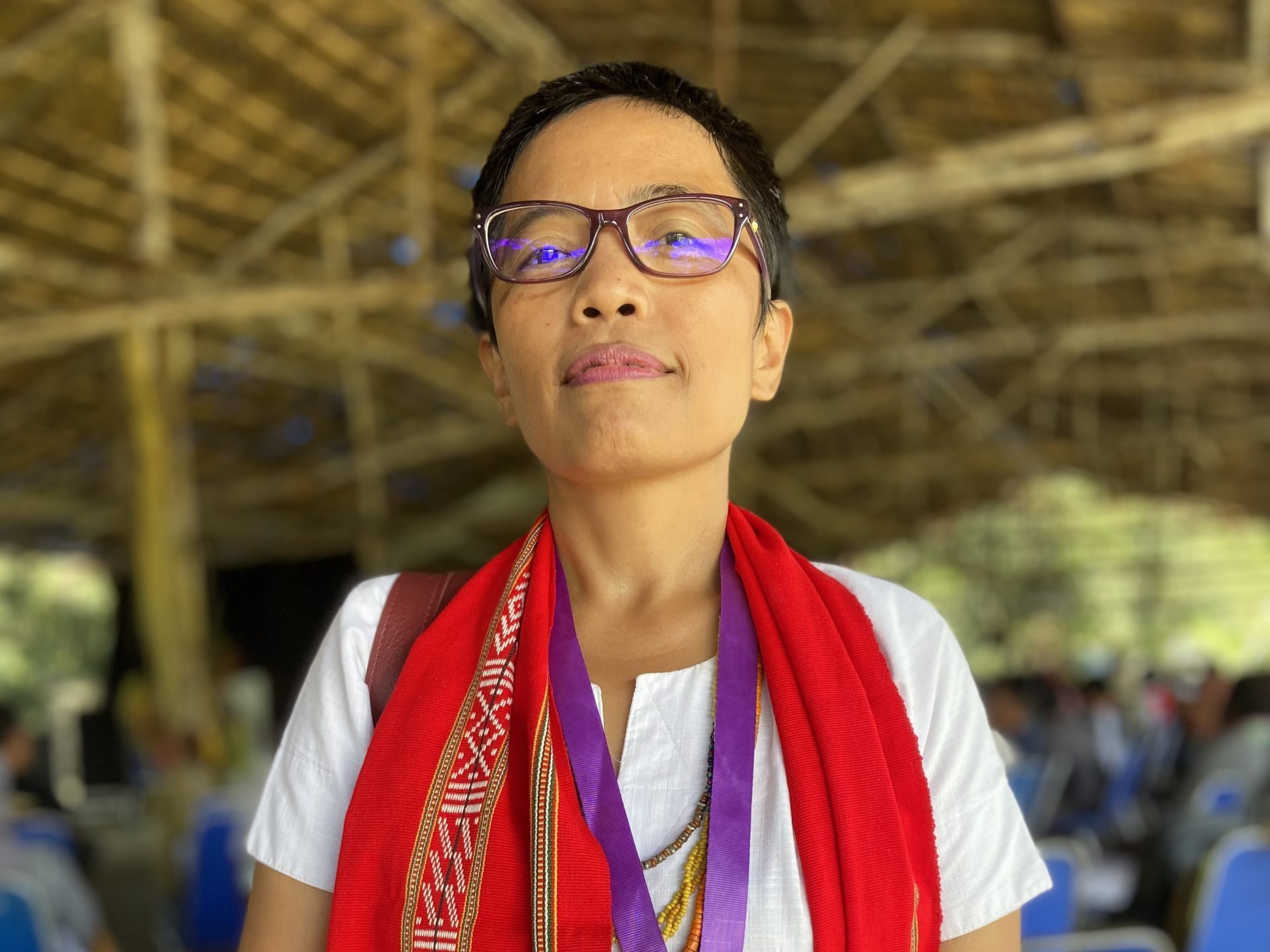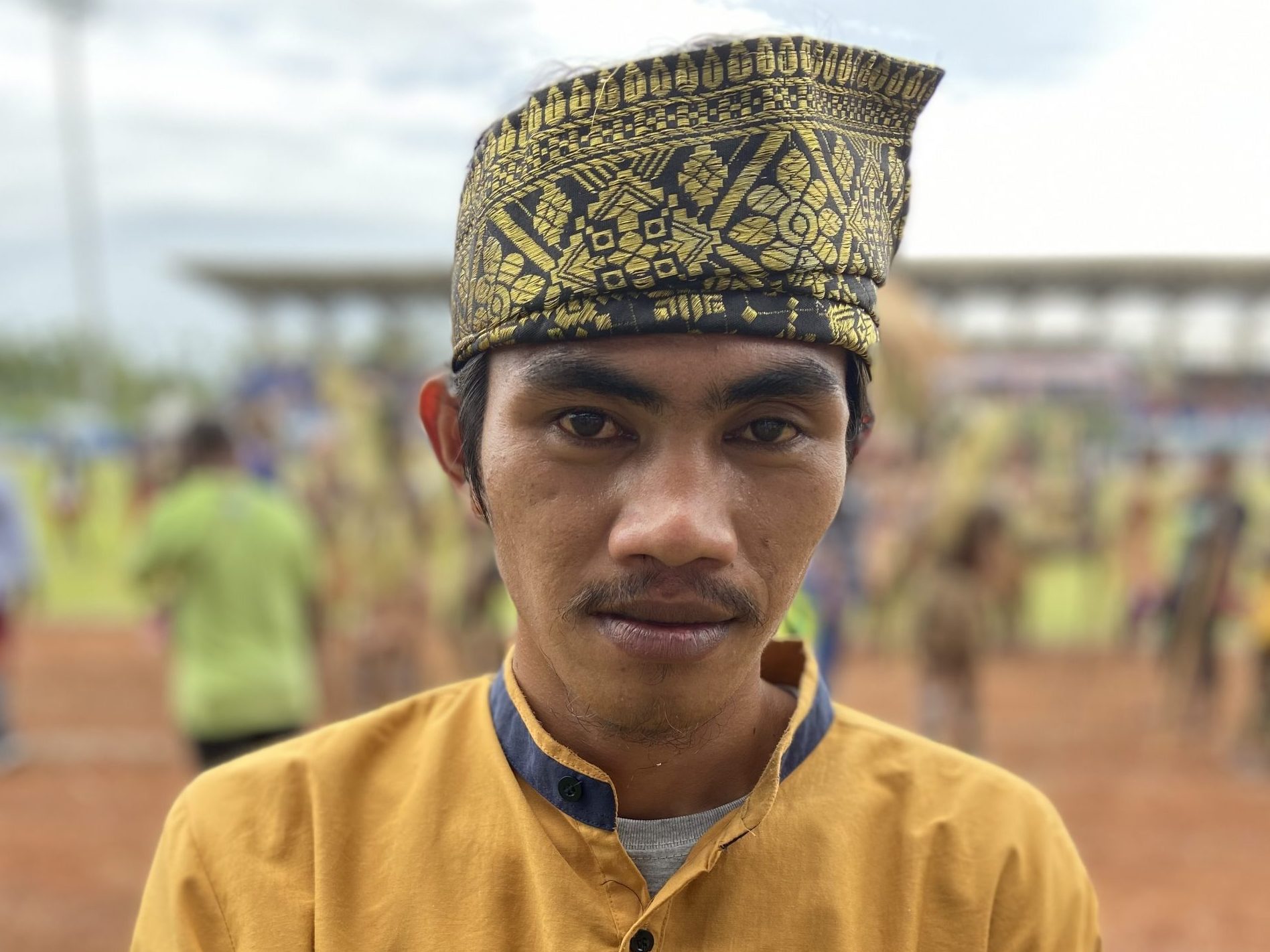2022-11-21
Convened every five years, the AMAN congress gathers thousands of Indigenous Peoples from the Indonesian archipelago for decision making, knowledge sharing and cultural exchange.
With the banging of a handheld drum, leaders in Indonesia brought to a close one of the largest gathering of Indigenous Peoples in the world.
Thousands travelled from across the island nation to attend the five-day congress organised by AMAN, the Bahasa acronym for the Alliance of Indigenous Peoples of the Archipelago. Participants flew, took boats, rode on open-air trucks or even walked to reach the congress grounds in Papua, one of Indonesia’s easternmost provinces.
Once there, indigenous communities shared their successes and struggles, discussed the hazards and hopes for their ancestral territories as well as ate, sang, and danced together in a vibrant celebration of their different cultures and customs.
“What people bring here is the results and experience from all the work they have been doing in the last few years,” said Rukka Sombolinggi, the secretary general for AMAN, a national coalition of more than 2,000 communities and a strategic partner of the Tenure Facility. “They bring their challenges, their realities from the ground and I hope they inspire each other and strengthen their solidarity.”

AMAN's Secretary General Rukka Sombolinggi
Convened every five years, the congress is the highest decision-making body for AMAN as well as an open forum to address the pressing issues its members face. Communities can raise and unite their voices on topics like land rights, private sector dealings, carbon markets, sustainable funding, youth engagement and more. It also serves as a platform for cultural and informational exchange between Indonesia’s diverse indigenous population, which numbers in the tens of millions.
In addition to its workshops and festivals, AMAN’s congress is also where members choose their new leaders and adopt the coalition’s strategic objectives for the next five years.
A member of the Toraja people from the mountainous region of south Sulawesi, Rukka Sombolinggi was elected as the first female secretary general in 2017 and was picked for a second term at the congress in October. In her closing speech, she encouraged the organisation’s membership to take an active role in politics and seek out leadership positions.
“We have to be present in spaces that create policies that control our lives,” she said. “If you are not ready, decisions on our lives will be determined by others.”
"What people bring here is the results and experience from all the work they have been doing in the last few years,"
One participant at the congress was Lili Andika, a member of the Talang Mamak people from the Indonesian isle of Sumatra. He made the journey for the first time with some 30 others from his community. High on his personal agenda was mounting pressure on the government to pass a bill recognising and protecting Indigenous Peoples that has stalled in parliament since its submittal in 2012.
“We wish that the government will soon finalise the draft of the Indigenous People Bill,” he said. “Our land is very important, it’s where our ancestors and culture come from.”
For Hanok Breiram, an indigenous Papuan from Yambra village, he was most interested in sharing his traditions with his fellow Indigenous Peoples visiting from elsewhere in the country. He also wanted to learn more about how other AMAN communities secure and safeguard their territories.
“It’s about the indigenous land, it’s important,” he said.
Making up the country’s eastern edge, the island of Indonesian Papua is home to hundreds of indigenous communities, many of whom are not members of AMAN but still participated in the congress and its workshops.

Lili Andika, a member of the Talang Mamak people from Sumatra
Like other peoples in Indonesia, indigenous Papuans rely on their lush tropical forests that cover the island for much of their livelihoods. They harvest foods like sago and bananas or products like rattan and tree bark that is knotted or woven into traditional noken bags. They also experience the same kinds of threats from forest concessions, plantations and extractive industries.
AMAN’s leadership said the choice of Papua was a conscious one.
“It’s time for Papua to rise up and be recognised and be engaged with more brothers and sisters from all over Indonesia so they don’t feel alone,” said Mina Setra, deputy to AMAN’s secretary general for social-cultural affairs.
Articles